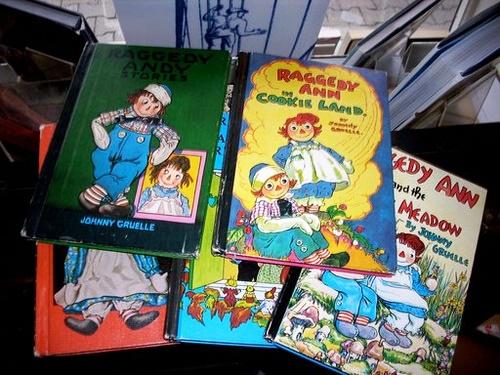Sign Up For Our E-Blast To Receive Information on our Books, Speech Therapy materials and our latest freebies!
The Matthew Effect and Literacy – What’s the Connection?
The Matthew Effect and Literacy – What’s the Connection?
Ever hear the phrase: “The rich get richer and the poor get poorer?” Probably.
Photo Credit: scottysauce
This popular phrase was coined in 1968 by an American sociologist named Robert Merton. At the time Merton was researching the reward system in science and discovered that more famous scientists were disproportionately credited for their contributions, while lesser known scientists received less credit than their contributions deserved. He called this phenomenon the Matthew Effect, named after the following passage from the gospel of Matthew:
“For unto every one that hath shall be given, and he shall have abundance: but from him that hath not shall be taken even that which he hath.”
– Matthew 25:29, King James Version.
How does the Matthew Effect relate to literacy?
Enter Keith Stanovich. Dr. Stanovich is a psychologist and Professor of Human Development and Applied Psychology at the University of Toronto. He popularized this term as it relates to how early success in reading predicts later success in learning. The better the child’s oral language, phonological awareness, and print awareness, the greater chance they will learn to read. Additionally, children who are exposed to books from infancy and come from literate rich environments will more likely learn to read when entering school because they have a better foundation and understanding of key underlying concepts. Unfortunately, on the flip side, more and more research shows that children who start off poorly either due to a lack of resources, access or because of learning or language difficulties, will usually continue to remain poor readers. According to a special report from the Annie E. Casey Foundation, “Reading by the end of 3rd grade can be a make or break benchmark in a child’s educational development. Up until 3rd grade, children are learning to read. Starting in 4th grade children are reading to learn. They need to understand what they are reading to solve problems, learn about characters, and come to solutions.”
The preschool years are very critical in the development of emergent literacy skills.
Please join me over the new few months as I share tips, strategies, resources, and activities to promote emergent literacy skills.
References:
Lanter, E., & Watson, L. R.,(2008) Promoting literacy in students with ASD: The basics for the SLP. Language, Speech, and Hearing Services in Schools, 39 33-43.
Annie E. Casey Foundation. (2010). Early Warning! Why Reading by the End of the Third Grade Matters. Retrieved from http://www.aecf.org/
Keith E. Stanovich Biographical Summary (n.d.) Retrieved from http://www.keithstanovich.com/
Matthew Effect. (2013, September 16). In Wikipedia, The Free Encyclopedia. Retrieved 19:01, October 10, 2013, from http://en.wikipedia.org/w/index.php?title=Matthew_Effect&oldid=573192439
Pullen, P. C., & Justice, L.M. (2003) Enhancing phonological awareness, print awareness, and oral language skills in preschool children, Intervention in School and Clinic 39(2) 87-98.
Kimberly Scanlon, M.A. CCC-SLP is a speech language pathologist, an author and a mother. As the owner of Scanlon Speech Therapy, LLC, a unique boutique practice in Bergen County, Kimberly embraces individuality and treats the whole person. Her goal is to spread compassion, hope, and some speech, language and literacy tips one moment, one person at a time. Her first book, My Toddler Talks: Strategies and Activities to Promote Your Child’s Language Development and her her second book, Learning to Read is a Ball
are available for purchase at online at Amazon and Barnes and Noble.

